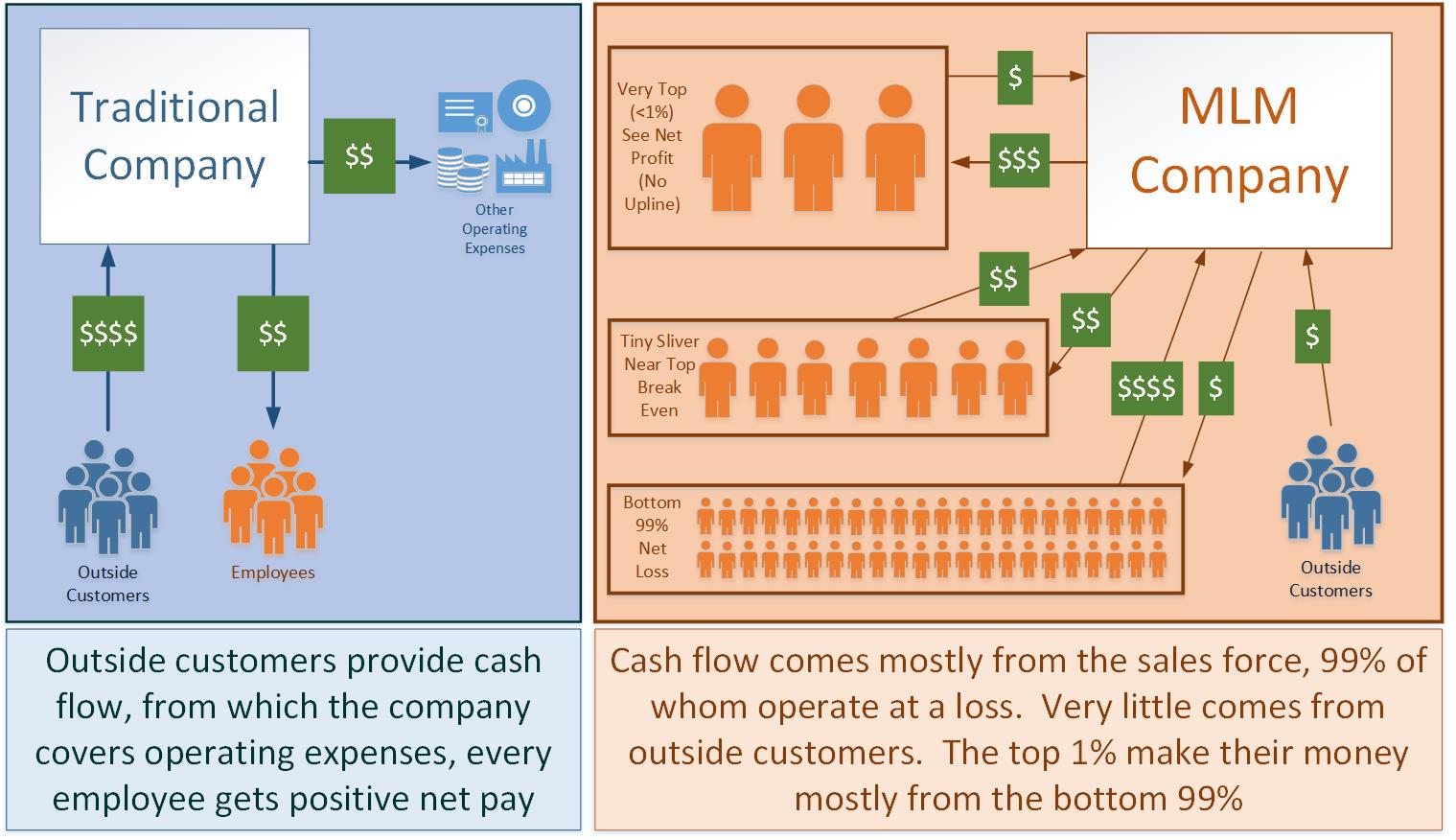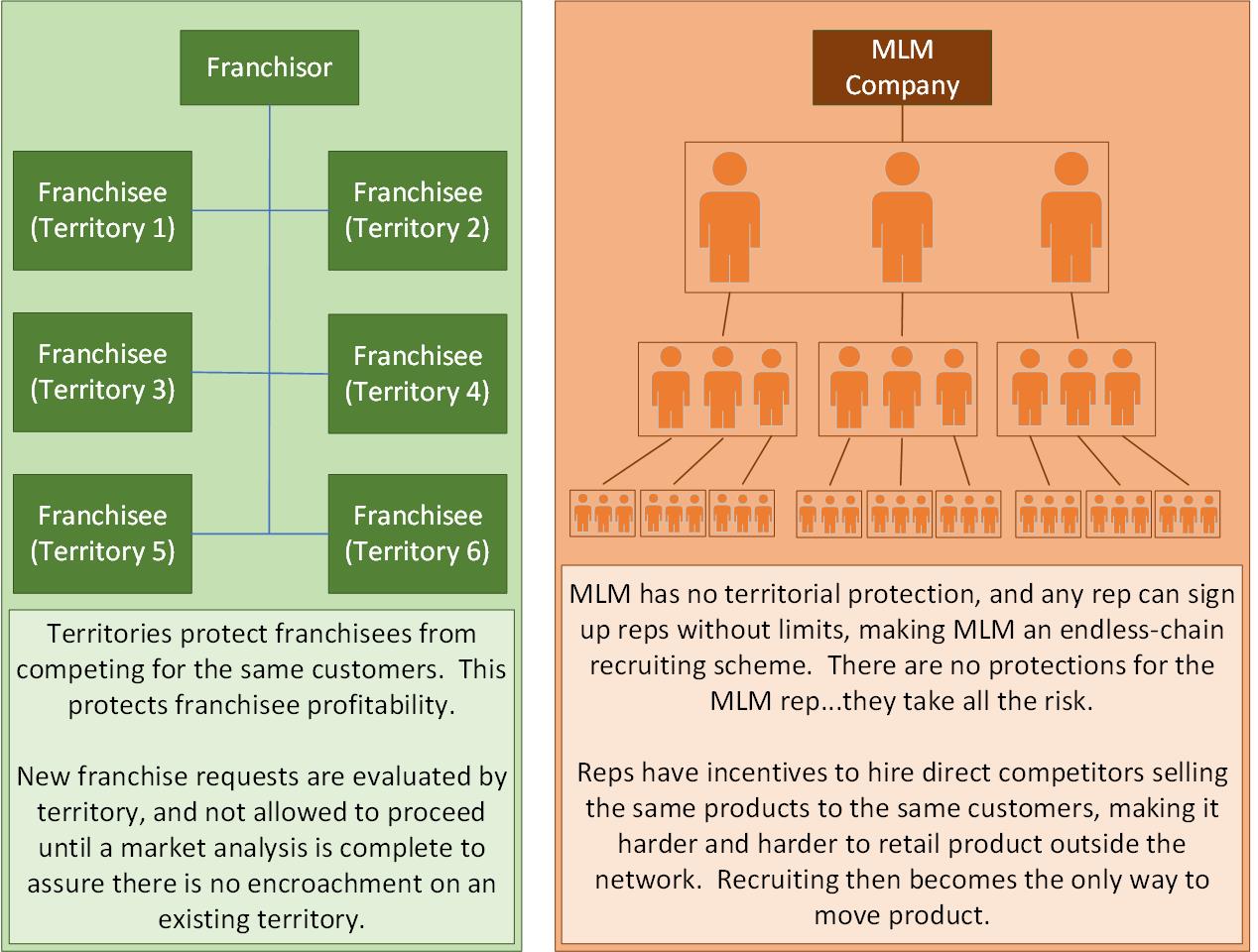Multi-Level Marketing Defined
(MLM) - "A scheme in which a person (as a 'seller') buys a certain amount of product from a 'distributor,' and then sells for a profit. The seller must then kick back some of his profit to his distributor. In turn all the other sellers this person has recruited and distributes product to must kick back some of their profits to him."
Traditional Company vs. MLM
"Multi-level marketing companies (MLMs) like to refer to themselves as “Direct Sales” companies, because this puts the focus on the sale of the product or service, and takes focus off the business of recruiting." (SOURCE)
Franchise vs. MLM
"How to decide if you're being scammed.
A franchise owner files with the local taxing authority, IRS, and articles of incorporation (or partnership). An MLM hun signs up, typically on a website, and does not own a business.
A franchise owner pays a franchising fee for use of the company brand and royalties based on their sales. An MLM hun pays a sign up fee and receives no rights to the company brand and purchase non-returnable products to resell at a higher price.
A franchise owner hires employees or contractors and files the appropriate forms. They pay taxes for unemployment, workers compensation, and payroll. They pay their employees fair wages for work performed regardless of profits. An MLM hun has a downline of pure profit based on other people's work.
A franchise owner follows company standards to ensure customer experience conform across locations, regardless of whether or not the entrepreneur owns these locations. An MLM hun has limited company standards which may or may not be enforced and customer experience varies widely.
A franchise owner will invest in marketing to increase sales through print ads, mailers, radio, television, and other forms of advertising. An MLM hun has multiple social media accounts and randomly posts to them wondering why no one wants to buy their stuff.
A franchise will provide ongoing training and assistance to owners to guide them into confidently independent operation of their locations. An MLM company provides a PDF and emails, mostly advising you to purchase something to increase your sales/downline.
A franchise will investigate and create solutions to help your business be successful. An MLM will place blame on its solicitors for not doing a good enough job.
Franchises typically perform within 20-30% of one another and can be grouped into target market demographics. MLMs perform at 100% differences.
Franchises require you to qualify to ensure you are competent and financially healthy enough to operate a business. MLMs literally take anyone.
The next time someone tells you they're a business owner and they're selling something, as to see their retail license. Or a copy of their annual report. No, not the company they resell products for, THEIR company. Ask who their accountant, attorney, and credit card processor is."


